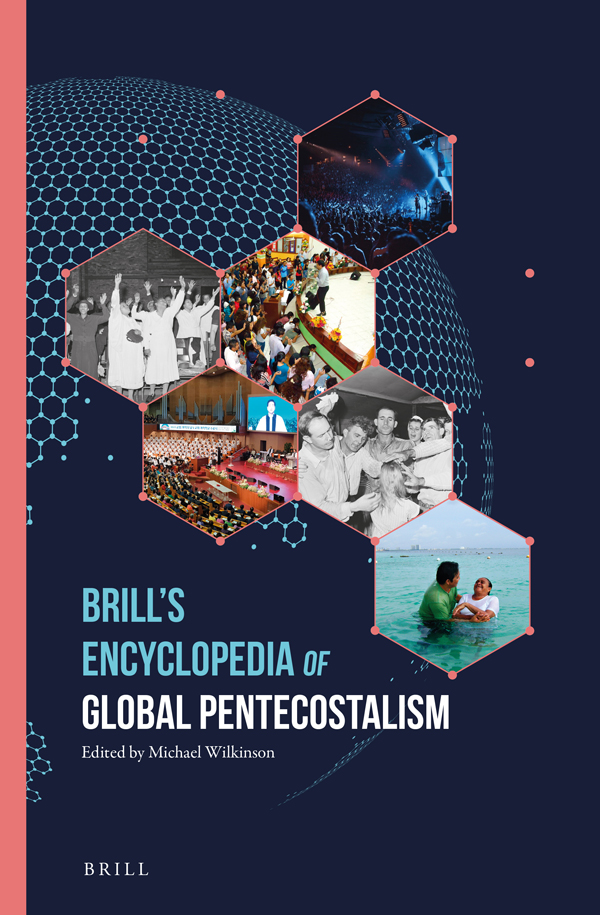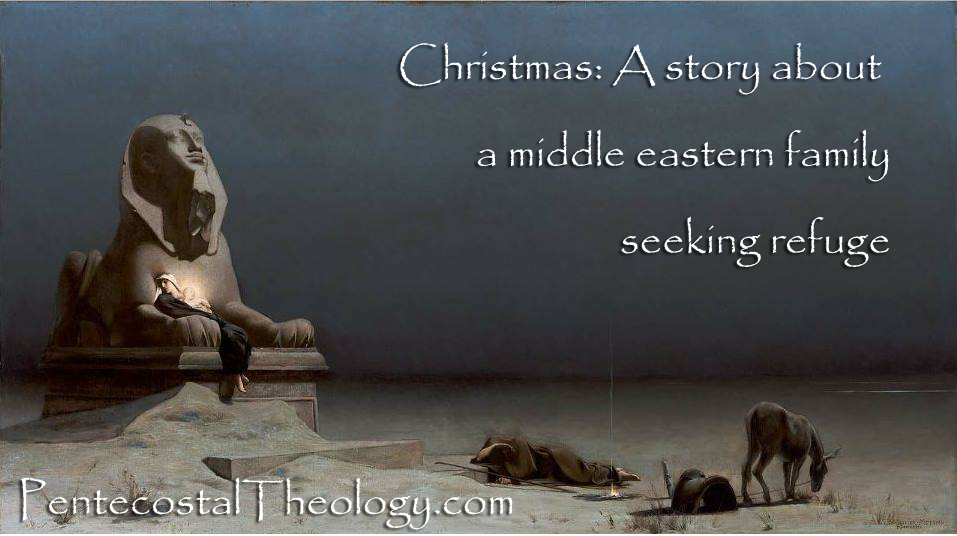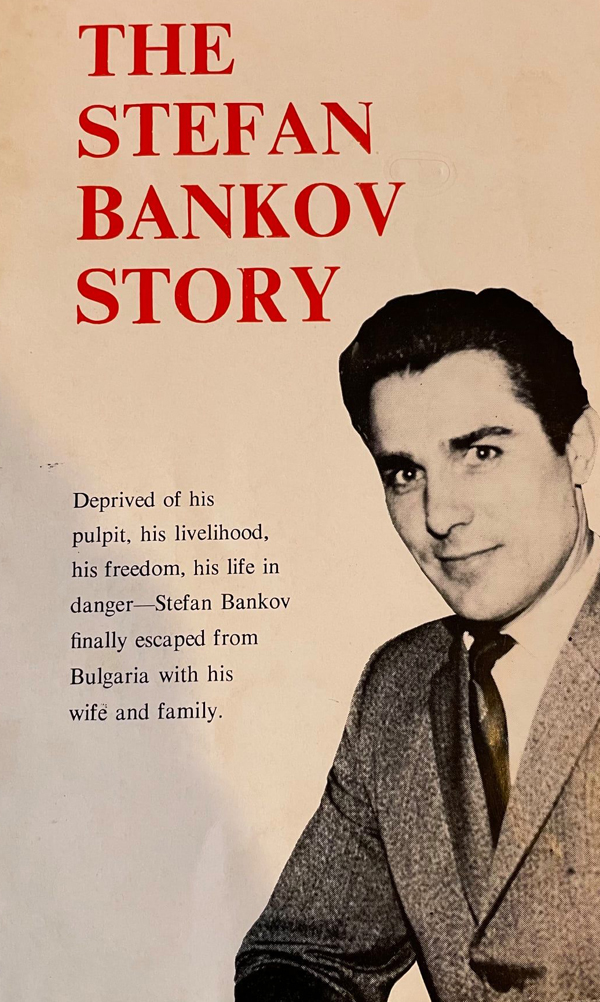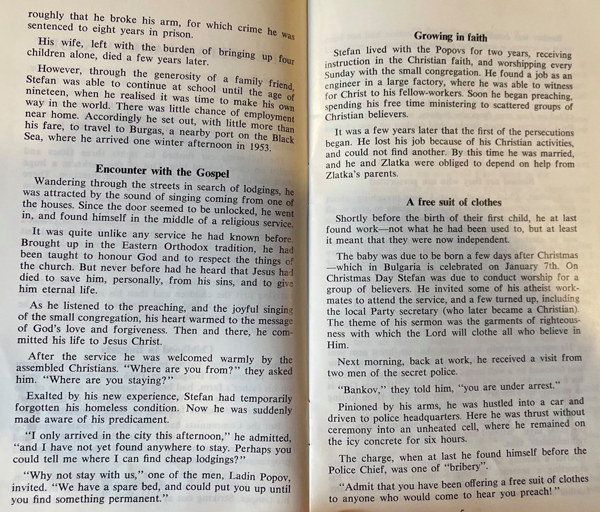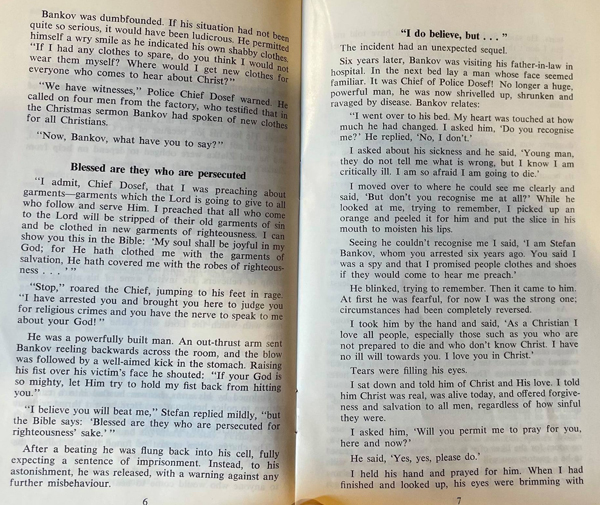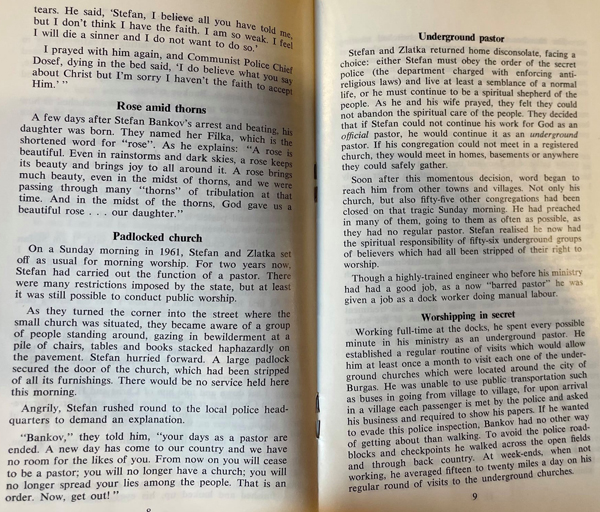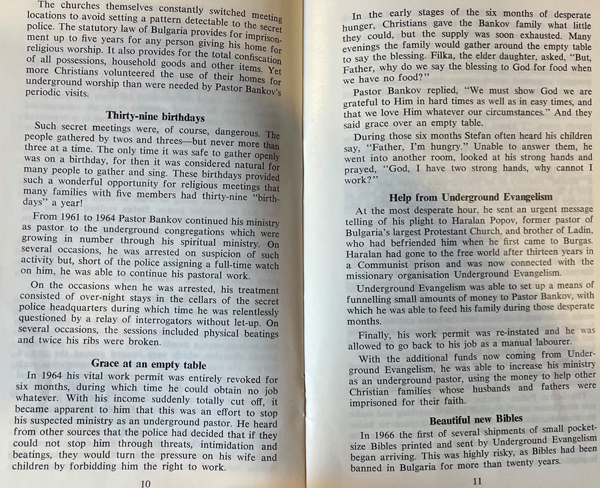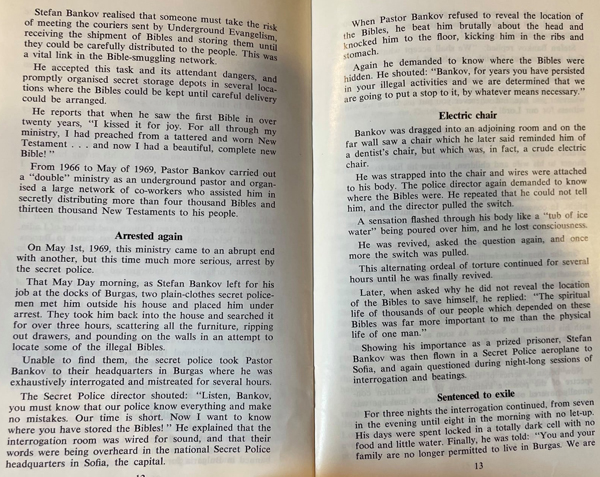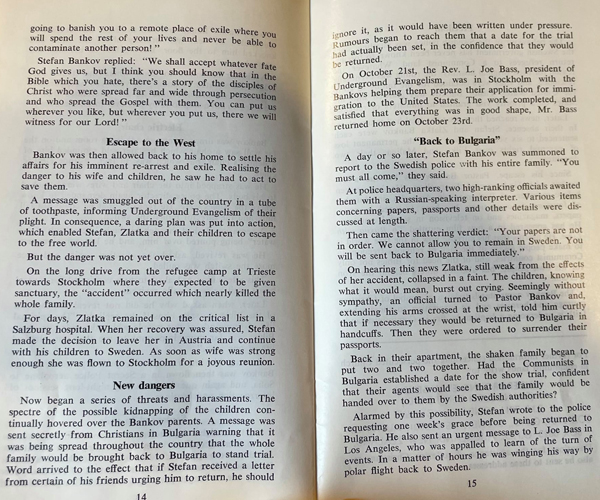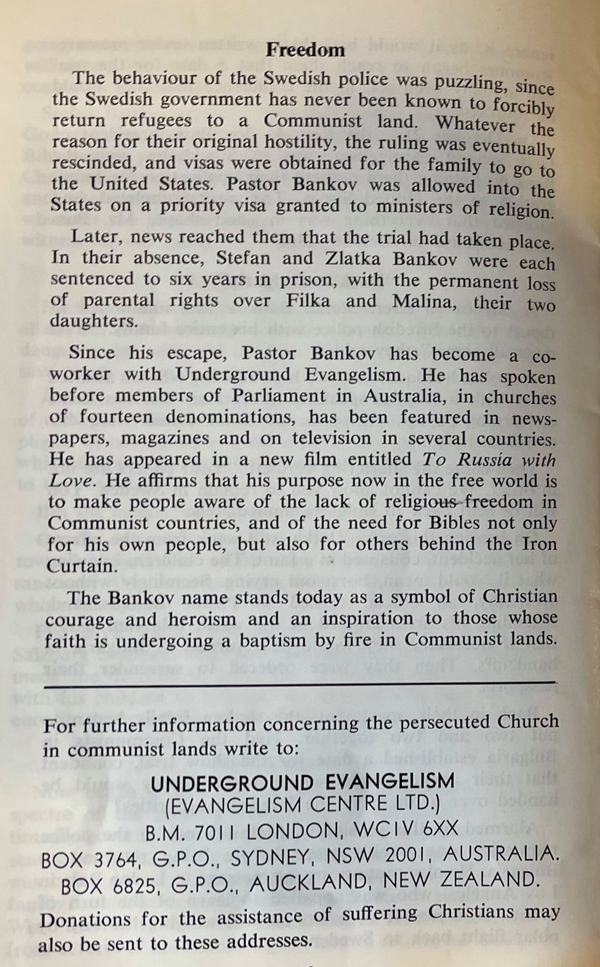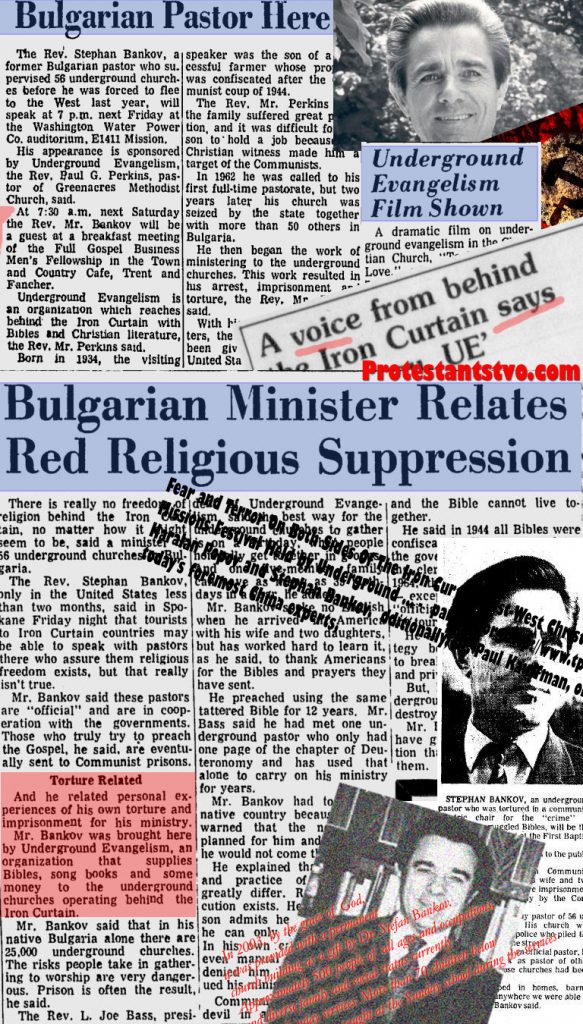160,000 Pentecostals in Bulgaria Reported by the NEW Encyclopedia of Global Pentecostalism
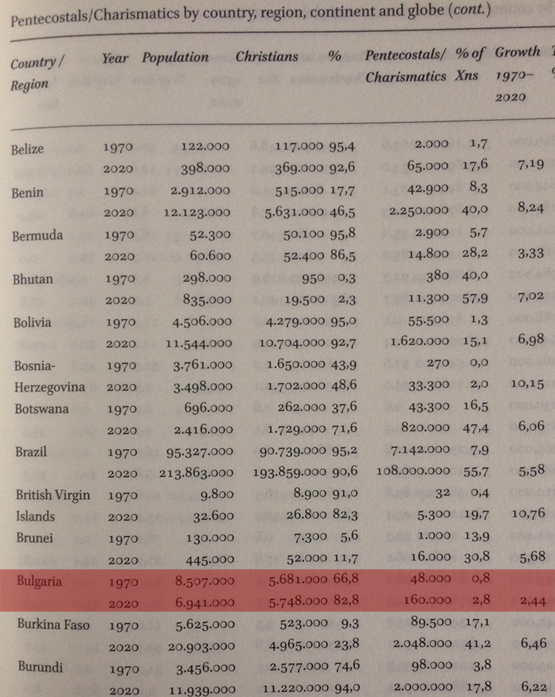
Bulgaria in the Tension between NATO, Ukraine and Russia
Bulgaria‘s strategy in the crisis over Ukraine, adopted at today’s cabinet meeting, will be aimed entirely at the Bulgarian army, and our country will make every effort to resolve the conflict peacefully. This was announced by Prime Minister Kiril Petkov after the government session.
Some of the information during today’s sitting is secret and will not be announced, including to the deputies in the parliament, Kiril Petkov told the ministers. Later, it became clear from his words to the media that Bulgaria will focus all its efforts on resolving the Russia-Ukraine conflict through diplomatic channels. And our defense system will be aimed at developing the potential of the Bulgarian army.
Less than a day was the deadline given by Prime Minister Kiril Petkov to the Minister of Defense Stefan Yanev to prepare a draft of the national position of our country and measures to strengthen the security system in Bulgaria. The project was submitted and approved at today’s meeting.
The Council of Ministers decided to prioritize Bulgaria‘s strategy towards fully de-escalating tensions between NATO and the Russian Federation, as well as to use absolutely all opportunities through diplomatic channels to resolve this conflict. Our defense strategy will be based on the Bulgarian army. That means Bulgarian troops, Bulgarian command and Bulgarian military leadership, said Kiril Petkov, prime minister.
The Prime Minister expressed regret that over the years our army has been underfunded and stressed that we will work actively to cover precisely these deficits by avoiding the purchase of equipment that is not systematically selected. From now on, Bulgaria should not be just a consumer of security. It should be a constructive partner of NATO, said Kiril Petkov.
The Minister of Defense Stefan Yanev announced that together with the diplomatic efforts “Bulgaria must develop its defense potential in the direction of preparing a battalion battle group with Bulgarian troops and Bulgarian command”. On BNT he explained the details:
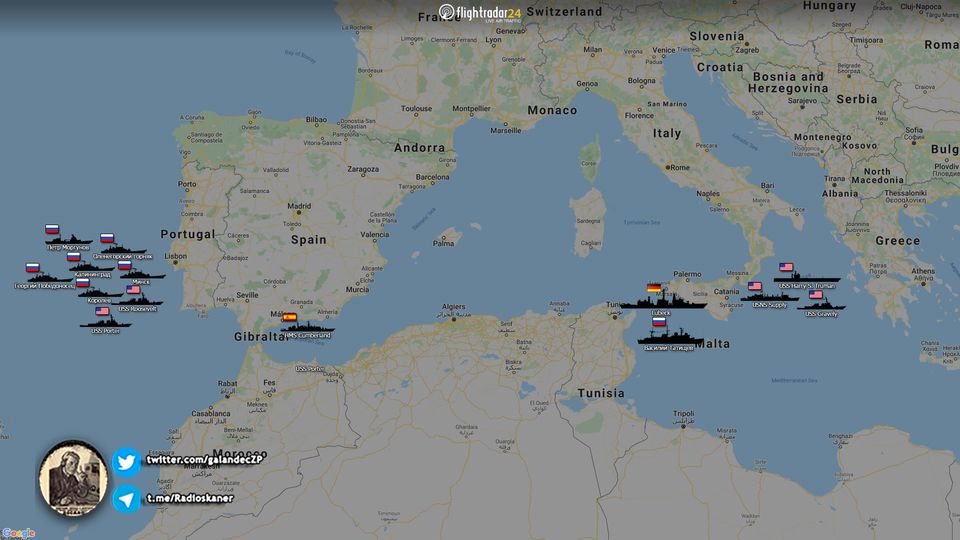 This will happen with a limited contingent, if we talk about what size – the order is not more than one battalion, not more than 1,000 people. A joint exercise is not a task, but a means, a joint exercise is a means to increase training and capacity. The battalion will take part in joint NATO exercises, which have been planned since last year, Yanev said. According to him, the decisions made today will be the Bulgarian position in the framework of the discussed measures in NATO.
This will happen with a limited contingent, if we talk about what size – the order is not more than one battalion, not more than 1,000 people. A joint exercise is not a task, but a means, a joint exercise is a means to increase training and capacity. The battalion will take part in joint NATO exercises, which have been planned since last year, Yanev said. According to him, the decisions made today will be the Bulgarian position in the framework of the discussed measures in NATO.
Neither the Prime Minister nor the Minister of Defense commented today on the information from the last days about the possible deployment of NATO ground troops and fighters in our country.
Source from Brussels: Bulgaria is Ready to Accept French Soldiers
And the Foreign Minister reminded that since December at all diplomatic forums our country has consistently insisted on the need to find a diplomatic solution to the conflict. These efforts will continue in the future. We hope that the conflict will be resolved diplomatically. However, diplomatic speech must be supported by the necessary evidence that we have the necessary defense capabilities, said Teodora Genchovska – Minister of Foreign Affairs.
The National Assembly heard out Kiril Petkov and ministers on Russia-NATO tensions at an extraordinary meeting today
The Prime Minister, the Ministers of Defense, the Ministers of Foreign Affairs, and the heads of the services in connection with the Russia-NATO tension and the Bulgarian position were heard in the parliament.
Bulgaria is not a consumer of security – this was stated by Prime Minister Kiril Petkov before the National Assembly. He added that in the current situation the Bulgarian army will be prioritized with a battalion, which will probably be formed in April-May. There is also a readiness to withdraw Bulgarian diplomats from Ukraine, but there is no such need at the moment.
The Minister of Defense highlighted the deficits in the Bulgarian army. The Foreign Minister pointed out that our country gives precedence to diplomacy.
MPs outlined dialogue as the best mechanism for resolving the crisis. They expressed concern about the state of the Bulgarian army and the possible economic consequences of escalating tensions.
The de-escalation of tensions is a top priority for Bulgaria, Prime Minister Kiril Petkov reaffirmed before parliament.
Bulgarian PM: Bulgaria is a Sovereign State. Russia should De-Escalate
“The escalation is real. We monitor all developments in this conflict on a daily basis. Our strategy for the first time has the idea of not being security consumers, but partners. Over the years, there are clear deficits in equipment in the Bulgarian army. We have different options – to prioritize the Bulgarian army, with Bulgarian troops, with Bulgarian command,” said Kiril Petkov.

The Minister of Defense further developed the idea of prioritizing the Bulgarian army.
“A Bulgarian battalion will be made and everything will be done through national communication channels. This means that this battalion will increase the pace of preparation. We do not envisage escalation. We do not envisage plans to defend national territory. Nor do we envisage plans for another team to go elsewhere, to a different place”, said Stefan Yanev – Minister of Defense.
The Foreign Minister pointed out that our country gives precedence to diplomacy.
“Obviously, Russia is trying to divide allies by dividing them into categories,” said Teodora Genchovska, the foreign minister.
Opposition party GERB expressed concern that our country may behave as a security consumer.
“We will support you if you stop raising dust with phrases such as ‘national interest’. For us, the national interest is to be a strong member of NATO. GERB governments have done a lot for our defense capabilities – we paid for ‘Cougars’ and ‘Spartans’, you will order and pay the next F-16s. If you offer us a meaningful position – we are ready to support you,” said Daniel Mitov of GERB-SDS.
“The only thing to say whether we are a consumer is how we set our priorities. Our priority is the Bulgarian army with Bulgarian troops,” said Kiril Petkov.
The political party Democratic Bulgaria expressed concern over the state of the Bulgarian army.
“The mission of the Bulgarian army is constitutionally set, but we are all aware of the degree of readiness of obsolete equipment and delayed modernization,” said Hristo Ivanov.
The opposition party Movement for Rights and Freedoms outlined the best solution to the problems in this crisis.
“Through discussion, transparency, and everything that leads to military action. What would be the economic consequences?” Mustafa Karadayi said.
“The main risks are in the energy sector,” Kiril Petkov replied.
And the coalition party “There Is Such a People” focused on the possible economic consequences of escalating tensions.
“Is there a scenario for the energy sector?” Victoria Vasileva of TISP asked.
“We have a clear plan and we are in communication with the EU on how this can happen. Bulgarian households and businesses will be able to count on it,” said Kiril Petkov.
The Bulgarian left welcomed the ruling party’s decision to de-escalate tensions.
“The key for Bulgaria is to maintain its position in this hysterical situation. Bulgaria will not engage in hostile and military action,” Christian Vigenin from the Bulgarian Socialist Party said.
The nationalist Vazrazhdane (Revival) party asked the prime minister if he thought Russia posed a threat to Bulgaria‘s national security.
“There is an escalation of hysteria in Bulgaria. Russian troops are just doing standard exercises. This is being used in the domestic political debate. We are not just a consumer of security, we are using security as a maneuvering ground,” party leader Kostadin Kostadinov said.
Russia has launched Military Maneuvers near Ukraine and in Annexed Crimea
Bulgarian PM: Bulgaria’s Sovereignty is Above Everything
“We have no master. No one can say otherwise,” said Kiril Petkov.
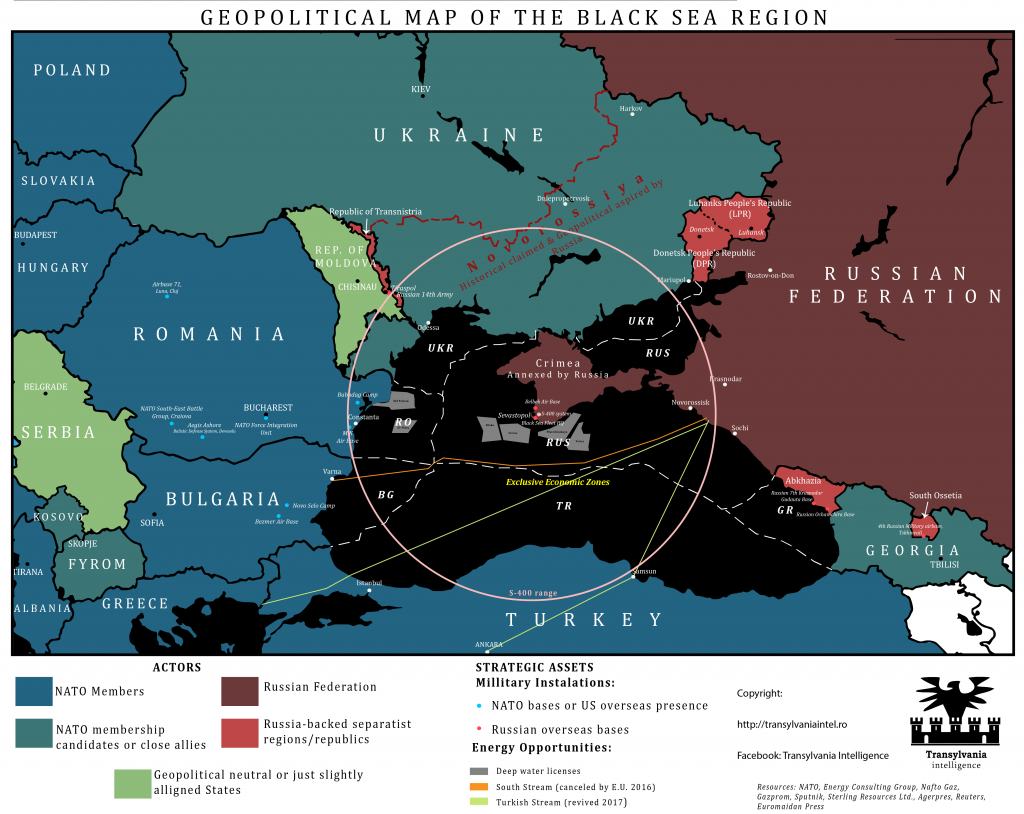
20 Year Challenge
January 20, 2022 by Cup&Cross
Filed under Featured, Missions, News, Publication
Restorative Significance of the Gifts Given to the Christ Child
It is recorded that the Magi gave the Christ Child three gifts upon his birth; gold, frankincense and myrrh. We understand the gold today as a physical gold, representing His kingship and the other two as an incense to symbolize his priestly role and oil for his foreseen death. Yet, what if the gold that was given to the Christ child was for another reason and perhaps it was not “gold”, but a golden spice or a golden salt. Of the gifts, one could be ingested, one could be inhaled and one could be absorbed. If we look at all from a medicinal viewpoint, these three gifts may have more symbolic meaning than once perceived.
MAGI
So who exactly were the “Magi”. We know that they followed the stars and were from the East. The East was a region of the world known, at the time, for its great knowledge of natural remedies. So it is not unimaginable that they could have been natural healers or homeopathic doctors of their times. This could explain the hypothesis that all three gifts had a therapeutic purpose in the life of Christ.
GOLD
If we view the gold in compound form, it can be used in the treatment of rheumatoid arthritis. Gold is a type of disease-modifying anti-rheumatic medicine (DMARD) that dampens down the underlying disease process. This meaning it treats inflammation and stops the immune system from attacking its own body’s tissue. Gold can also be used to treat other auto-immune conditions. If we think of the gift of gold as a spice, the first one that comes to mind is curcumin which is known as the “golden spice” of the East. It also has the ability to reduce inflammation and provides immune system support along with anti-cancer effects. This golden spice seems to have the ability to kill cancer cells and prevent their regrowth.
FRANKINCENSE
When frankincense is inhaled, it is the most effective method of delivery to send a chemical message to the brain. The oils in frankincense have a high level of sesquiterpenes, an agent found in plants that has the ability to go beyond the blood-brain barrier. Sesquiterpenes from frankincense increase oxygen availability in the limbic system of the brain which leads to an increase in secretions of antibodies, endorphins and neurotransmitters. In layman’s terms it has the ability to go straight to the brain without traveling through the bloodstream and brings healing properties to reset and repairs its internal communications. It’s almost as if it can unlearn a disease or degenerative disorder passed down in our DNA.
The amygdale glad of the brain’s limbic system plays a major role in storing and releasing emotional trauma. The only way to stimulate this gland is with fragrance or the sense of smell. This may help us understand how we are able to release emotional trauma with aromatherapy of frankincense.
MYRRH
Myrrh also can arouse the limbic system to release emotional trauma. It also has anti-inflammatory and immune boosting properties among with many other health benefits. Once applied to the body, oil molecules pass through dermis, into the capillaries and directly into the bloodstream.
The substance know as monoterpenes are present in almost all essential oils. They are what enhances the therapeutic values of other components and are the balancing portion of the oil. They inhibit the accumulation of toxins and restore the correct information in the DNA of the cell. Sesquiterpenes are also found in myrrh and delete the bad information in cellular memory or memories that are hypothesized to be stored outside the brain in the body.
REMARKS
This is quite interesting, to say the least, that all three gifts can protect the body from such dramatic trauma. The body of Christ from infancy was being safeguarded against what was to become his destiny of great suffering and pain. The cathartic releasing of emotional trauma provided with the gift of frankincense would lay the foundation for the harrowing experience of death by crucifixion.
All three offerings had anti-inflammatory properties and helped support the immune system by preventing the system from attacking its own body’s tissue. Christ’s earthly body was protected right down to the minuscule cellular level. Even the cellular memory of his body was restored with these gifts. At a molecular level, His Heavenly DNA was being guarded. The gifts purposed to protect the Christ child’s from disorders genetically passed down and to restore the information in the cells of the DNA.
One gift was for the body, one was for the blood and one was for the brain. One gift purposed to go beyond the blood-brain barrier while the other was via the bloodline. The Christ child was both a descendant of a Heavenly father and an early mother. The father’s bloodline was supernatural while the mothers’ was a physical line.
We will never truly understand this side of Heaven all the care that went into protecting the Christ child. Yet since we are descendants of a Perfect Deity, we too have this promise of complete restoration of curses, sickness, disease, imperfections, degenerative disorders, mental impairments, and any physical, mental or spiritual attack of the body, mind and soul. We have been given a choice of living a life of blessing or curse. Just as the gifts of the Christ child had to be accepted, we too much choose to accept this promise.
Third National Elections for 2021 in Bulgaria
November 10, 2021 by Cup&Cross
Filed under Featured, News, Publication
This weekend, Bulgaria is holding another, third national elections for 2021. This one has a double outcome – new parliament and a new president. After not being able to form a government in the first two elections for 2021, the country is heading to a major political storm within the growing pandemic. Apart from struggling economically with other EU countries, Bulgaria is currently leading with death cases due to COVID and the temporary acting government has been hopelessly drifting between strong restriction measures of virtually all business and gatherings or a complete lock-down for weeks at the time. None of these has brought any desired results.
On the contrary, virtually all evangelical churches are struggling to respond to the needs of their congregations pressed between the harsh restrictions and keeping the lights on as commercial electricity cost has increased over 33% this year alone. While the Eastern Orthodox church in Bulgaria is subsidized with some $10-25 million and the Muslim confession with $3 million, the evangelical churches are only hoping to get some grants after this year’s national census is counted. By accepting state subsidy, however, religious groups in Bulgaria are entering a season of dependence on secular government. For the evangelicals this means:
- Churches and ministers must declare all foreign currency money flow and foreign bank accounts
- Participation of foreign persons in the administration of any denomination is strictly forbidden
- Foreign parsons shall not be allowed to speak at religious meetings in any way shape or form especially religious sermons
- Anonymous donations and donorship to religious organization is not permitted
- Bulgarian flag shall be present in every temple of worship
- The new measure will block all foreign interference in the faith confessions and denominations in Bulgaria
As if all this is not enough, just a week before the elections it was revealed that the electronic vote this time will be done on voting machines purchased from nowhere else but Venezuela. Over 400 such machines have been brought into the country without registration “for spare parts,” which brings even more confusion and suspicion to the already fragile election process that has occurred in Bulgaria almost every year since 2005.
Government Elections in Bulgaria (2005-2022):
2005 Parliamentary Elections
2006 Presidential Elections
2007 Municipal Elections
2009 Parliamentary Elections
2009 European Parliament elections
2011 Presidential Elections
2011 Local Elections
2013 Early parliamentary elections
2014 Early Parliamentary Elections
2015 Municipal Elections
2016 Presidential election
2017 Parliamentary elections
2019 European Parliament election (23-26 May)
2019 Bulgarian local elections
2019 Municipal Elections
2021 March National Parliament election
2021 Second National Parliament election
2021 Third National Parliament and Presidential elections
THE STEFAN BANKOV STORY
October 25, 2021 by Cup&Cross
Filed under Featured, Missions, News, Publication
One of them was Dr. Stefan Bankov, perhaps the immigrant with greatest influence for the Bulgarian Protestant scholasticism. Immigrating to the United States in 1969 after being severely persecuted in Bulgaria, Bankov earned a doctoral degree in theology and dedicated his life to one great purpose, namely the preparation of the first concordance of the Bulgarian Bible. The concordance was completed in 1986 before the era of the personal computer. After the fall of the Berlin Wall, Bankov returned to Bulgaria to work with his home church of Bourgas. He is the founder and president of East-West Christian Solidarity, a nonprofit religious organization based in California which aims to provide Christ-centered evangelism, preaching, teaching, and humanitarian for Bulgaria.
Marked Man: The Rev. Dr. Stefan Bankov (1934-2021)
October 20, 2021 by Cup&Cross
Filed under Featured, News, Publication
Marked Man
https://www.christianitytoday.com/ct/1978/november-3/new-firepower-for-fighting-war.html
The mysterious deaths in London last month of Bulgarian defectors Vladimir Simeonov and Georgi Markov didn’t surprise fellow defector Stefan Bankov. Bankov, a Christian who left Bulgaria with his family in 1969 to escape persecution, now preaches the gospel by radio to his countrymen. Working with Underground Evangelism in Glendale, California, he says that he and his family have been subjected to Communist harassment, threats, and assassination attempts.
While flying from London to Seattle in 1974, a man and woman spilled a liquid on Bankov’s shoulder that paralyzed his side and made him violently ill for several days. Two months ago, shots were fired at him outside his home. Bankov says that during his stay in the United States, there has been an attempt to kidnap his daughters. He reports that strangers have made attractive offers to his wife and daughters to get them to return to Bulgaria, and that his family has received hundreds of abusive telephone calls. A note taped recently to a window at the Bankov home warned: “You are marked. We follow you all the time.”
Bankov made these threats public only recently and after the deaths of Simeonov and Markov, who were among a group of five Bulgarian broadcasters who defected. Markov died after being stabbed by a poison-tipped umbrella. Simeonov died after falling down the stairs inside his London apartment (London authorities aren’t discounting the possibility that he was pushed), and Vladimir Kostov survived a poisoning attempt similar to that which killed Markov. A fifth broadcaster now working for Radio Free Europe hasn’t been attacked.
Currently under police protection, Bankov is cooperating with the FBI and Scotland Yard in an investigation of the deaths of the Bulgarian defectors—victims, he is sure, of foul play on the part of Bulgarian Communists. “I think their (the Communists’) main purpose is to scare every member of my family,” Bankov said of his own situation. “They want to keep us under constant psychological pressure.”
The Bulgarians apparently are upset by Bankov’s radio witness that is beamed to his homeland of nine million people. He recently received a letter from Bulgaria that warned him to leave Underground Evangelism, an organization with an evangelistic outreach to Communist countries, or “the troubles will never stop.”
Bankov attended a Bible college in Los Angeles for four years before starting his radio ministry. He works seven days a week preparing sermons and lectures in systematic theology for his Bible College of the Air. Broadcasts are aired once a day over Radio Trans Europe in Portugal and over Radio Malta.
The Bulgarian government frequently uses “ground wave jamming” to block Bankov’s broadcasts into major Bulgarian cities, according to Underground Evangelism president Joe Bass. Copies of a two-volume set of Bankov’s sermons and lectures, as well as cassette tapes of his broadcasts, are being smuggled into that Communist nation.
Bankov became a Christian in 1953, and he later pastored an independent church in Bulgaria until the government closed it in 1964. Bankov still owns the tattered New Testament, held together by a rubber band, that was his only resource during his ministry in Bulgaria.
The forty-five-year-old Bankov is accustomed to persecution. Before he escaped Bulgaria, Bankov says he was “constantly under pressure.” “It was a difficult time with the Bulgarian government.… They accused me of being mentally sick because I could not see the progress of the Communist party or of the Socialist society.”
Bankov, who creates most of his own teaching materials during twelve- and fourteen-hour working days, fears most for the safety of his family. As he intends to continue his radio ministry, he says, “My prayer every day is just, ‘Lord, help the kids and my wife to understand.’ ”
East-West Christian Solidarity, Inc.
Glendale, California 91225
Mission:
East-West Christian Solidarity was founded by Dr. Stefan Bankov, an internationally recognized Christian leader who survived Communism and the Cold War. Rev. Bankov was an underground pastor in Bulgaria from 1958 to 1969. He emerged from behind the Iron Curtain in 1969, after escaping a prison death sentence by the communist leaders in Bulgaria. He has survived communist torture, beatings, and attempted murder. After his escape, Pastor Bankov continued to preach to the Bulgarians by radio broadcasts from Trans World Radio and Radio Ibra. Dr. Bankov has spoken before members of Parliament in Australia, in churches of countless denominations, and his name has been featured in newspapers, magazines, and on television in several countries. Dr. Bankov has also authored many books–including the first Slavic Bible Concordance for the Eastern Bloc countries. After the fall of communism, Dr. Bankov returned to Bulgaria, his native homeland, to plant new churches, minister to the needs of people in this third world country, and contribute to the country’s long-term development. East-West Christian Solidarity offers preaching, teaching, literature, and humanitarian relief, in addition to planting, building and supporting churches even in the large Muslim population in remote areas of Bulgaria. Dr. Bankov has over 35 years of experience in providing underground evangelism, outreach and humanitarian relief in Bulgaria. For more information, please contact us.
Trends and Issues Affecting Asian Missions and The Next American Spirituality
September 30, 2021 by Cup&Cross
Filed under Events, Featured, Missions, Publication
“Three Trends and Three Issues Affecting Asian Missions” and the figures given by David Barrett present a Macedonian Call to 3.7 billion people with some 9% Christians, which is no small issue in global missions today. At the same time, America becoming the third largest mission field in the world is the obvious antipode of missionary need in the Western hemisphere. The parallels in post-modernity are many.

About 20 years ago, a book called “The Next American Spirituality” summarized the culture of today’s American spirituality and its relation to the apostolic church. The main question is, “What would a theology of the church look like that took seriously the fact that North America is now itself a mission field?”
To answer the question, Gallup and Jones examined how America does Biblical spirituality, using the gathered data to analyze its shift and direction. According to their survey, the marks of the next American spirituality were going to be (in short):
- Bull-market church growth
- Self-centered religion of me and thee
- Hunger for experience – any experience
- Search of roots amid the relativism
- Quest for community resulting in self-belongingness and self-realization
In our current context of ministry two decades later, all of the above signs are evident and true. This is due on hand to the constant shift in the cultural paradigm, as well as the obvious shift in the identity and practices of the Christian church in the postmodern context. It almost seems like instead of being the model, the church is following a model, which not only changes the churches identity but interferes with its original evangelistic goal and global mission.
BULGARIA in Brill’s Encyclopedia of Global Pentecostalism
Brill’s Encyclopedia of Global Pentecostalism (BEGP) provides a comprehensive overview of worldwide Pentecostalism from a range of disciplinary perspectives. It offers analysis at the level of specific countries and regions, historical figures, movements and organizations, and particular topics and themes. The online version of the Encyclopedia is already available
For some of you it has been a long time ago that you submitted your article(s) for BEGP, for others it was a bit more recent, but I am very happy to announce that this Summer the print edition of Brill’s Encyclopedia of Global Pentecostalism will finally see the light. With this we can proudly close this chapter and proceed to see what the reception of the volume will bring! Thank you for being part of this great project!
To celebrate, we will organize an online symposium on September 16th, with presentations from the editors as well as 3 experts who will comment on BEGP: Amos Yong, Birgit Meyer and Néstor Medina. You can find more detailed information in the attached flyer. Please be welcome.
Registration is free (but necessary to receive a link); we will raffle one free copy of the print edition among the registered participants. For registration and questions, please send your message to [email protected], mentioning Symposium in the subject line.
We hope to see you then!
Brill’s Encyclopaedia of Global Pentecostalism
Brill’s Encyclopedia of Global Pentecostalism (BEGP) provides a comprehensive overview of worldwide Pentecostalism from a range of disciplinary perspectives. It offers analysis at the level of specific countries and regions, historical figures, movements and organizations, and particular topics and themes. The online version of the Encyclopedia is already available